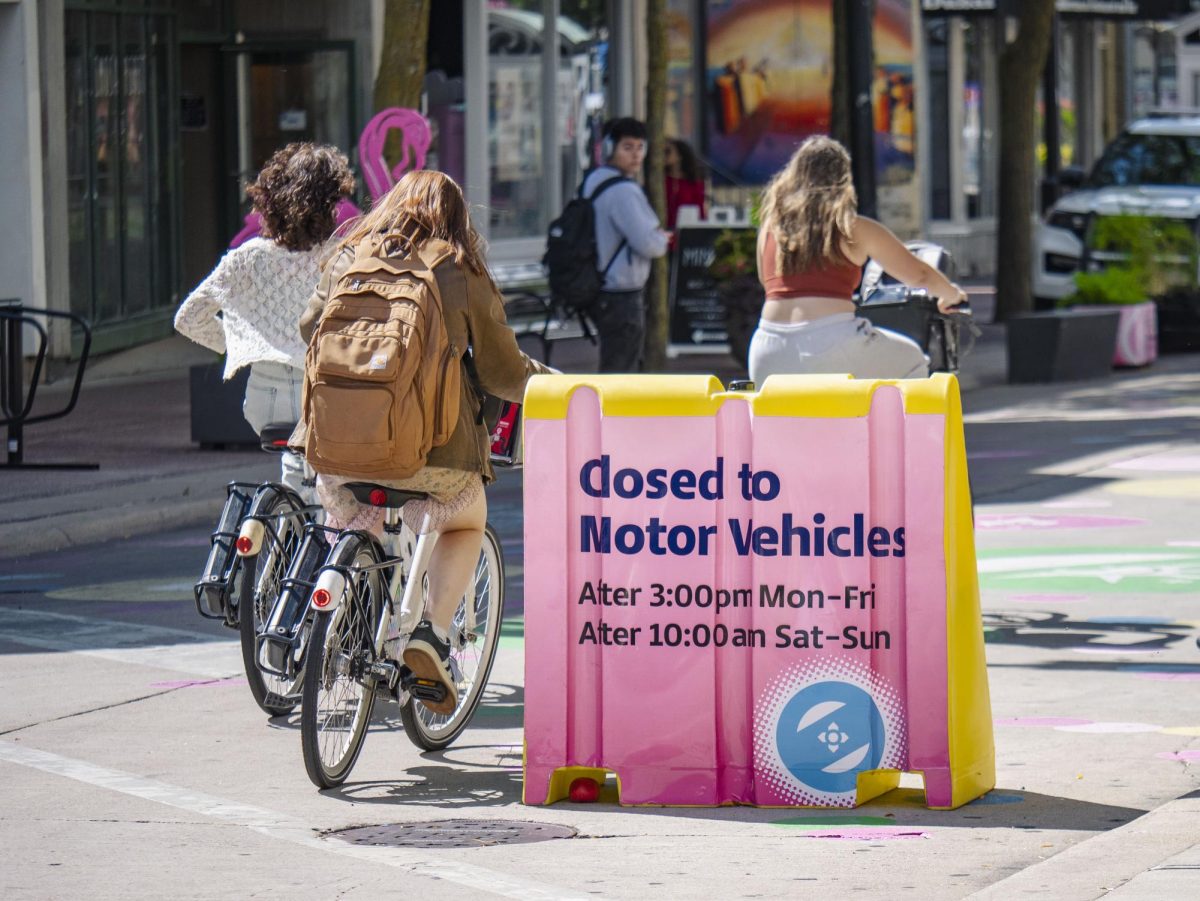The Pedestrian Mall experiment on State Street, also known as Flock to State, will officially end Oct. 30. The experiment, which started May 2024, closed the 400-600 blocks of State Street to non-emergency vehicles after 3 p.m. on weekdays and 10 a.m. on weekends, according to The City of Madison.
District 8 City of Madison Alder MGR Govindarajan, representing the University of Wisconsin campus and State Street, spoke to the goals of the pedestrian experiment.
“We wanted to make State Street a more accessible area for pedestrians, for bikers, and just making it more welcoming to people,” MGR said. “This also included making the businesses more accessible as well, so opening up the space and just bringing activity to the area, because as you’re able to do that, it creates more of a community feeling.”
This experiment allowed for several events including, “Are You Ready for a Wisconsin Adventure: Celebrating the Legacy of Dungeons and Dragons,” held in partnership with the Wisconsin Historical Society, “Kids on State: Skills Drills” with Forward Madison FC and “Electric Sundays,” an electronic music concert series and free movies in Peace Park, according to The City of Madison.
Flock to State also features the work of five local artists, including Maeve Makielski, Jessica Gutierrez, Taylor McAda, Sharon Bjyrd and Rahul Kamath. Hundreds of volunteer painters also contributed to the artwork on State Street, according to Downtown Madison.
“[The experiment] welcomes people to the area, but it also has a safety impact as well,” MGR said. “The more we activate any place; the more engagement we have there, the more activities we have there, the more events, we keep it safer, it prevents crime.”
At the start of the experiment, student input was poorly gathered, with only a small group of students surveyed and a poor rollout of the surveys themselves. The only individuals prompted for feedback were those living on State Street, and these surveys were only sent out through mail, according to MGR.
MGR suggests there are more efficient ways to gather information from students and community members.
“Many students don’t check their mail all the time, and they definitely don’t respond to it if it’s asking for feedback,” MGR said. “And the fact that they only targeted the State Street area wasn’t super inclusive, because you don’t have to live on State Street to experience State Street.”
After being sworn in, MGR implemented new regulations on surveys so they must be fully representative and conducted at a time that is suitable for students. A new requirement ensures any future engagement must be done during the academic year and must specifically avoid summertime, winter and spring breaks, as well as midterms and finals, MGR said.
The future of the Pedestrian Mall experiment on State Street is currently unknown but considered unlikely to return due to the city’s $22 million deficit in funding, MGR said.
On the November ballot, there will be a referendum question asking civilians if they approve of the city raising funds for city services through higher property taxes, according to MGR.
MGR encourages students and community members to vote yes on the referendum to assist in the possibility of the return of Flock to State.
“If people vote yes on that, and I encourage them to vote yes, then we will be able to continue the pedestrian mall, but otherwise, we’re going to have to find places to cut $22 million out of,” MGR said. “And the pedestrian street, as great as it is, it’s not a core function of the city.”


